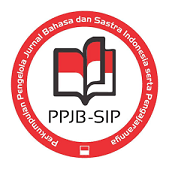Pemanfaatan Vlog Untuk Memproduksi Teks Eksplanasi Dalam Pembelajaran Berbasis Teks K13
DOI:
https://doi.org/10.23887/jjpbs.v11i1.30089Abstract
This study aims to solve the following problems. How are the techniques, constraints, and responses of IIS XI grade in SMAS Laboratory of Undiksha Singaraja to the use of vlogs to produce explanatory text in K13 text-based learning? The type of this research is descriptive-qualitative. The research subjects were teachers and students of IIS XI grade. The objects are techniques, constraints, and responses. Data were collected through observation, interview and questionnaire methods. Data were analyzed using descriptive-qualitative and quantitative methods. The results are as follows. Techniques for using vlogs to produce explanatory text were used, among others. Conveying perceptions, basic competencies, learning objectives, encouraging students to concentrate on the vlog that was displayed and explaining the meaning of the vlog that has been displayed, evaluated and provided feedback and informed further learning activities. The obstacles faced by the teacher were not being skilled at using computers, age, and it took a long time. Meanwhile, students, namely the vlog image are less clear and the sound produced is sometimes small, and the audio facilities are lacking. Student responses regarding the use of vlogs are positive. Hopefully this research can help teachers, students or other researchers.Kata kunci : Pemanfaatan media Vlog; Teks Eksplanasi; SMAS Lab Undiksha.
Downloads
Published
2021-04-30
Issue
Section
Articles
License
Authors who publish with the Jurnal Pendidikan Bahasa dan Sastra Indonesia Undiksha agree to the following terms:- Authors retain copyright and grant the journal the right of first publication with the work simultaneously licensed under a Creative Commons Attribution License (CC BY-SA 4.0) that allows others to share the work with an acknowledgment of the work's authorship and initial publication in this journal
- Authors are able to enter into separate, additional contractual arrangements for the non-exclusive distribution of the journal's published version of the work (e.g., post it to an institutional repository or publish it in a book), with an acknowledgment of its initial publication in this journal.
- Authors are permitted and encouraged to post their work online (e.g., in institutional repositories or on their website) prior to and during the submission process, as it can lead to productive exchanges, as well as earlier and greater citation of published work. (See The Effect of Open Access)







